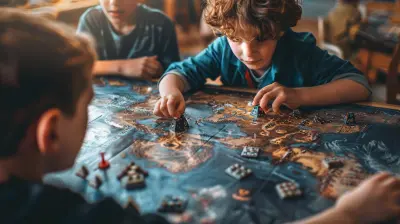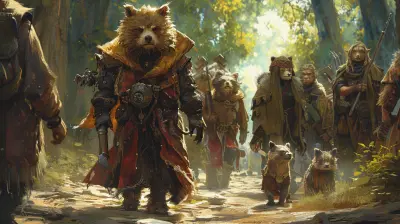Team Communication: The Key to Success in Squad-Based Battle Royale
4 June 2025
If you've ever dropped into a squad-based battle royale match and found yourself running solo because no one's talking, you know exactly how chaotic and frustrating that can be. Whether you're playing Apex Legends, Fortnite, Warzone, or PUBG, one thing remains true: communication isn't just helpful — it's critical.
Let’s be real, in the heat of battle where seconds matter, talking to your squad can mean the difference between a glorious win and a humiliating loss. So, grab your headset and get comfy — we’re diving into why team communication is the linchpin of success in any squad-based BR game and how you can level up your communication game today.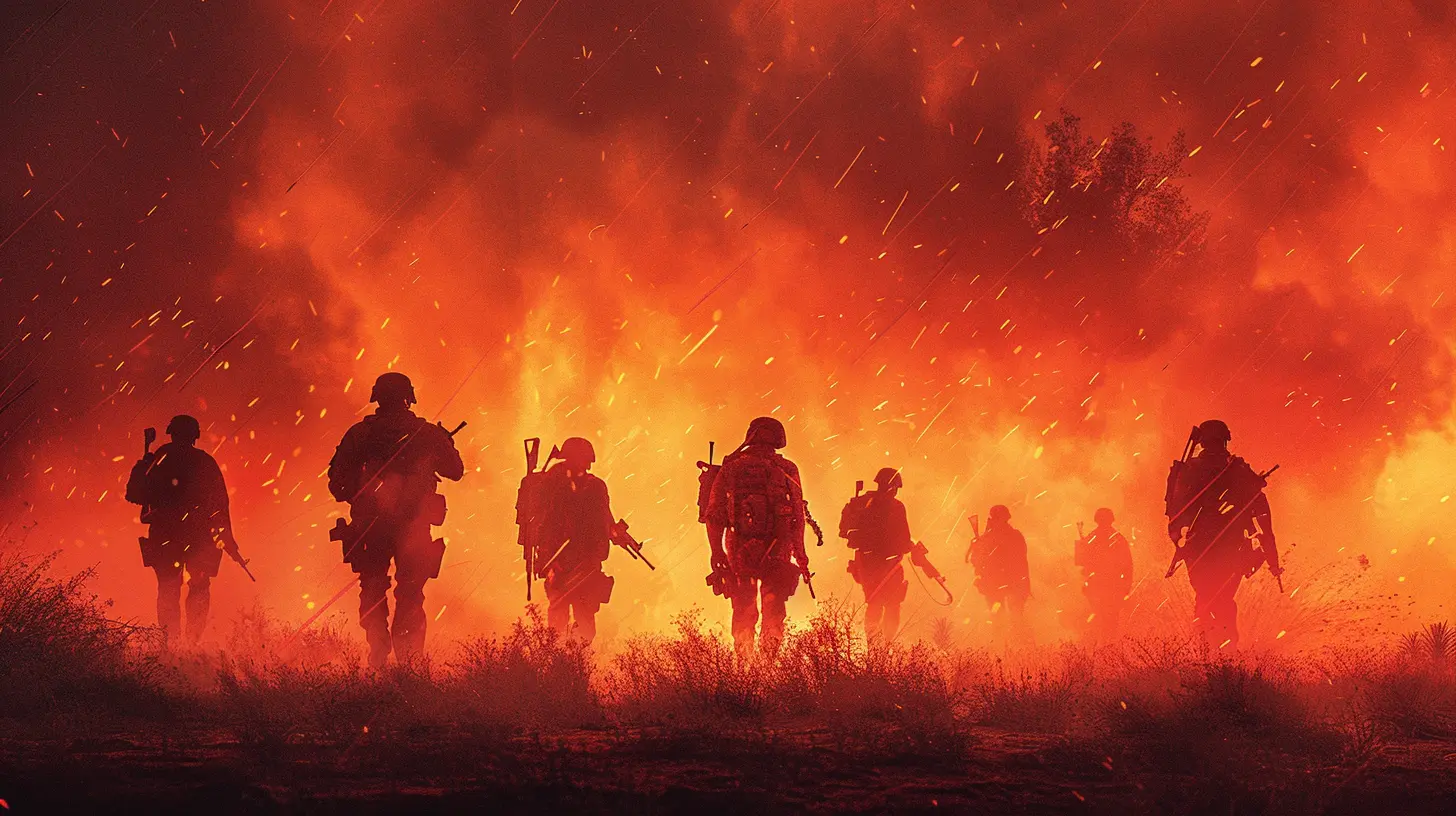
Why Team Communication Matters More Than You Think
You know that one person who mic-drops into a match, does their own thing, and gets knocked in 30 seconds? Don’t be that person.In battle royale games, everyone drops with nothing. You scramble for weapons, ammo, and armor — and the map starts shrinking almost immediately. Unlike deathmatch games where you respawn endlessly, here, each choice counts. That’s why coordinating with your squad is not just nice; it’s necessary.
When your team communicates:
- You avoid duplicate looting.
- Flanks become strategic, not accidental.
- Revives happen without panic.
- You move like one fluid unit — not like a bunch of chickens with their heads cut off.
Simple callouts like "enemy southeast, two pushing!" or "I’m low on ammo, need light rounds" can completely shift the tide of battle.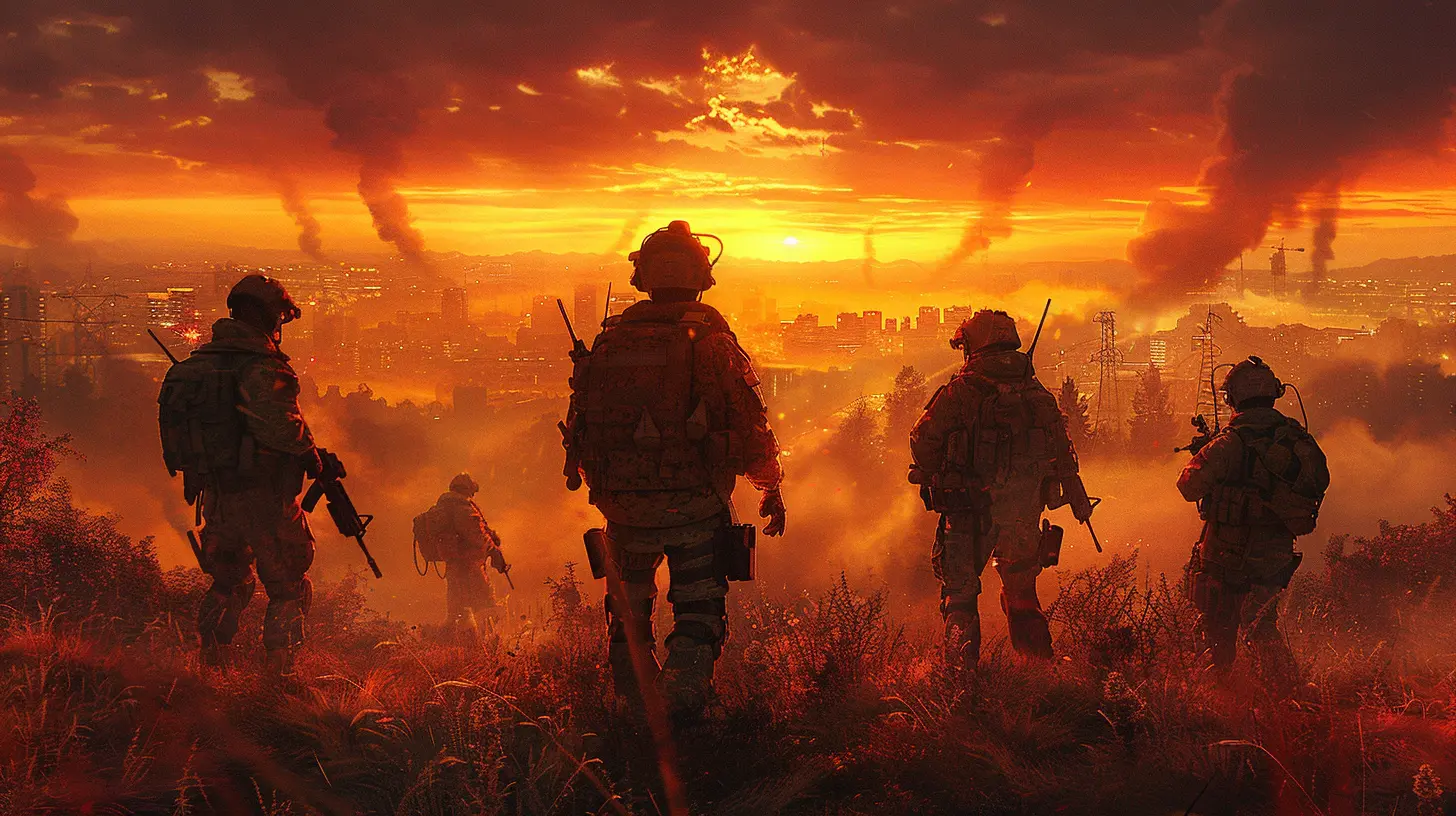
The Three Pillars of Effective Communication
So now you’re convinced: communication is key. But what kind of communication are we talking about? Just yelling “help!” over and over isn’t it. Let’s break down the holy trinity of effective in-game communication:1. Clarity
You don’t need military lingo, but you do need to be clear. Use compass directions, ping systems, and landmarks when calling out enemy positions or loot.Instead of:
> “They’re over there behind the thing!”
Say:
> “Two enemies at NW near the red house, behind the crates.”
It’s short, clear, and paints a picture your team can act on.
2. Timing
Good communication is timely. Don’t wait until you’re already down to shout “pushing!” Speak up the moment something important happens: you hear footsteps, you see a squad dropping, you’re reloading mid-fight. The sooner your team knows, the better they can react.3. Purpose
Keep it relevant. Not every moment needs play-by-play commentary. Focus on the stuff that helps your team make decisions. Fighting? Call positions. Looting? Share what you find. Rotating? Mark your path.Save the banter for the lobby (unless you're winning... then flex a bit).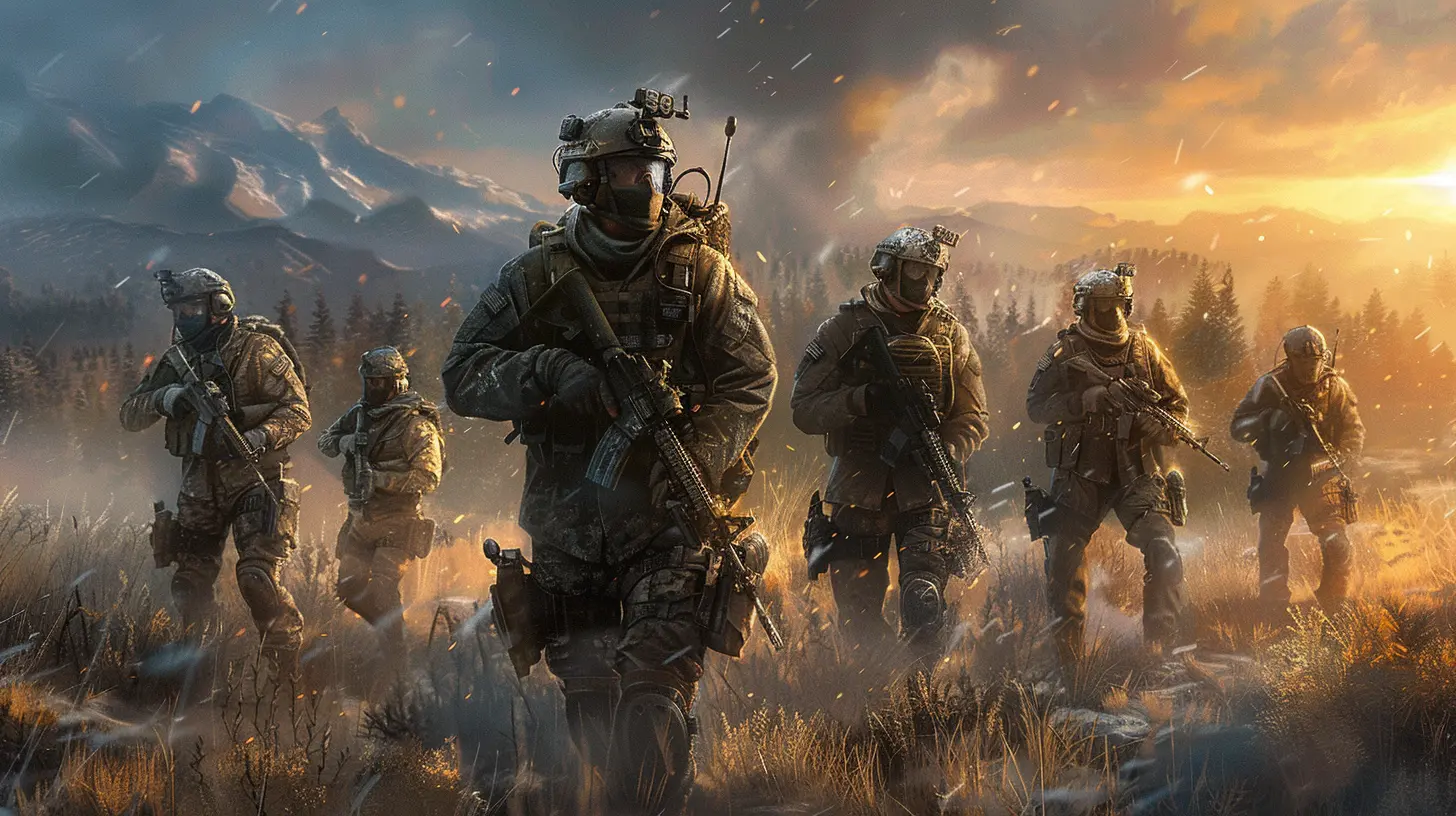
Tools of the Trade: Making the Most Out of Game Features
Most modern BR games give you tools to help with communication — use them! Don't ignore your ping system or quick-chat wheels. They're gold, especially if someone in the squad doesn't have a mic (or worse... terrible internet).Ping Systems
Games like Apex Legends revolutionized team communication with smart ping systems. You can:- Tag enemies
- Mark loot
- Ping suggested locations
- Notify your team you're defending or attacking
Mastering the ping wheel can make you a valuable squadmate even without a headset.
Voice Chat
Voice chat is still king. It’s fast, intuitive, and provides nuance. If you’ve got a working mic, use it — always respectfully. Good voice comms build trust, coordination, and even friendships. Who doesn’t love making a new gaming buddy after a chaotic win?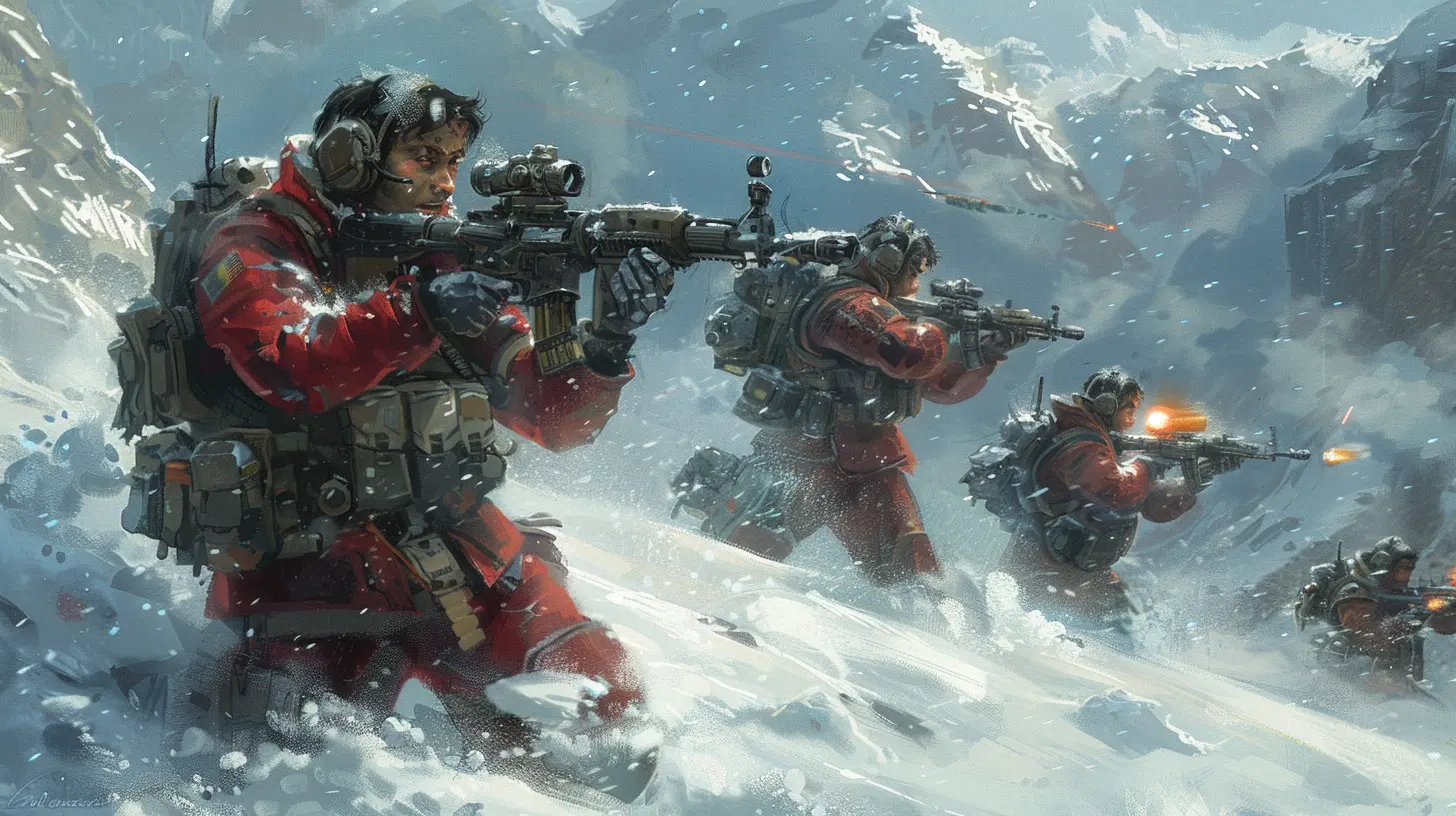
Roles & Responsibilities: Everyone Has a Job
One of the coolest things about squad-based BRs is that everyone naturally falls into a role — whether you plan it or not. And communication helps define and enhance those roles.Let’s look at a few common ones:
The Shotcaller
Usually the most vocal player — this is the strategist who suggests when and where to rotate, when to fight or flee, and keeps the squad focused on the objective.If you like map awareness and quick decision-making, this one’s for you.
The Fragger
This is your front-line brawler. They push fights head-on, flush out enemies, and go in hard. Clear communication about enemy positions, ammo needs, or flanking intentions is crucial here.The Support
Often the unsung hero. This player gathers resources, drops heals, and watches flanks. They’re the glue that holds the team together.The Scout
Fast, stealthy, and always out front. Scouts gather intel — enemy positions, rotations, and best approaches. Think of them as the team’s radar.When each role communicates well, your team doesn’t just survive — it dominates.
Conflict Resolution: When Tilt Happens (And It Will)
Let’s be honest: online matches can get heated. Maybe someone rushed a fight, or nobody helped you when you got ambushed. But holding grudges mid-match? Bad idea.Instead of rage-quitting, breathe, and say something like:
> “Next time let’s rotate together, I got caught alone.”
Staying cool keeps the vibes positive and sets the stage for success in the next match. Games are meant to be fun — not mini soap operas.
Tips to Level Up Your Communication Game
Alright, ready to put it into practice? Here’s how to become the MVP communicator in your next squad match:🔊 Always check your mic and settings before launching
Avoid starting a match and finding out no one can hear you until it’s too late. Sound check, always.🎯 Use short, sharp callouts
“Enemy on ping” > “THERE’S A GUY I THINK TO YOUR LEFT MAYBE???”🧠 Share your plans out loud
Heading to a building to loot or planning to rotate around the map? Voice it. It prevents confusion and keeps the team together.❤️ Drop ego, boost teamwork
Even if you’re cracked at aiming, you still need your team. Respect their input, adapt, and trust — that’s how squads win.Real Stories: Communication That Won the Game
Let me paint the picture. Final circle. It’s your squad vs. three others. There’s chaos everywhere — grenades flying, buildings crumbling, and heartbeats racing. You duck behind cover and shout:> “I’m flanking left, cover me. Push when I ping.”
Your teammate lays down suppressive fire. You come up behind two adversaries, knock them, and ping the last one. The team swarms him. Victory screen pops. 🎉
That’s the power of communication.
Every epic win you remember probably started with solid team talk and ends with a fist pump and someone yelling “Let’s gooo!”
But What If I’m Shy or New?
Hey, not everyone’s comfortable speaking up, especially with strangers. That’s normal. The good news? Games have built-in systems for that.Start small. Use pings. Acknowledge squad actions with quick replies. Over time, try saying one or two things per match. You don’t have to be a chatterbox — just contribute what you can.
Remember: even the best squads started as rookies.
The Final Circle: Communication = Victory
In the world of squad-based battle royales, flashy skins, K/D ratios, and pro-level aim are great — but they're nothing without teamwork.And teamwork? It lives and dies by communication.
It’s not about being the loudest. It’s about being the most helpful. Whether you're calling out enemy movements, sharing loot, or simply rallying morale when things go sideways — your voice is one of your strongest weapons.
So next time you drop in with your crew, make a pact: communicate, collaborate, and crush it. Victory loves a team that talks.
all images in this post were generated using AI tools
Category:
Battle RoyaleAuthor:

Stephanie Abbott
Discussion
rate this article
3 comments
Jamie McQuillan
Stronger together: communicate, conquer, celebrate victory!
June 20, 2025 at 3:29 PM

Stephanie Abbott
Absolutely! Effective communication is essential for teamwork and achieving victory in squad-based battle royale games. Let's celebrate our wins together!
Graham Rosales
Great article! Effective team communication is crucial in squad-based battle royale games. It not only enhances strategy execution but also builds trust among players, leading to better coordination and ultimately, more victories on the battlefield.
June 12, 2025 at 4:46 PM

Stephanie Abbott
Thank you! I'm glad you found the article useful. Effective communication truly is vital for success in squad-based battle royale games.
Laura Bailey
Team communication: because yelling 'behind you!' at your friend while they loot is totally a strategy... right?!" 🎮😂
June 11, 2025 at 3:31 AM

Stephanie Abbott
Absolutely! Effective communication goes beyond just alerts; it's about teamwork and strategy. But a little humor definitely keeps the game fun! 😂🎮

